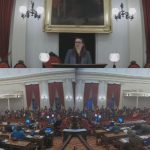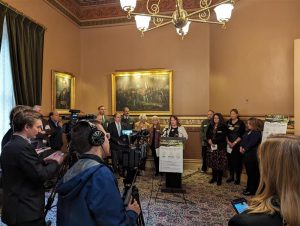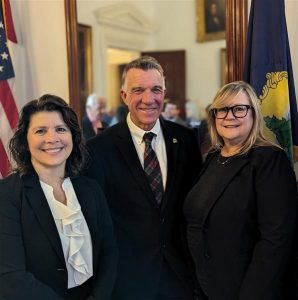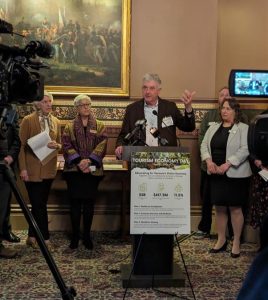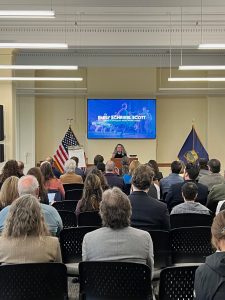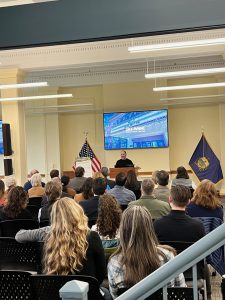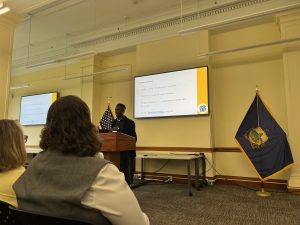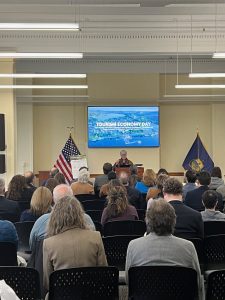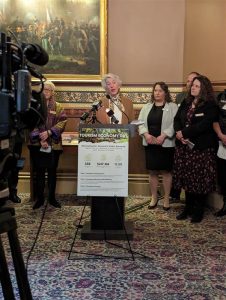A coalition of Vermont businesses and non-profit organizations sent a letter to the House Commerce and Economic Development Committee to raise concerns over the private right of action included in a consumer privacy bill that the committee is focusing on this session. The Vermont Chamber continues to raise business concerns related to anticipated consequences that could come from the significant unfunded mandates on Vermont businesses and non-profits (notably, the state government is now exempted from these mandates). Specifically, concerns that privacy violation allegations may lead to increased litigation that strain businesses, especially smaller enterprises that are crucial to Vermont’s economy.
The letter, sent on Monday, February 26, stated:
Dear Chair Marcotte and House Commerce & Economic Development Committee Members,
As we navigate the complexities of enhancing data privacy laws in Vermont, our organizations that represent Vermont businesses, non-profits, and trade associations, find ourselves at a pivotal juncture. The proposed data privacy bill, specifically its private right of action provisions, presents a significant concern that could inadvertently exacerbate the challenges facing our state’s economy and business and non-profit communities.
The introduction of a specific private right of action for data privacy violations risks ushering in a new era of litigiousness that our state is ill-prepared to absorb. While well-intentioned in its aim to protect consumer rights, experience from other jurisdictions tells a cautionary tale: such provisions invariably lead to a surge in litigation, placing undue strain on businesses and non-profits of all sizes, but most acutely on the small enterprises that form the backbone of Vermont’s economy.
These legal threats do not necessarily advance consumer protection. Instead, they divert critical resources away from innovation and growth, creating an environment of uncertainty that disproportionately challenges local businesses and non-profits. This is not merely a hypothetical scenario, it is a tangible risk that could undermine our collective efforts to foster a vibrant, innovative, economic landscape in Vermont that respects consumer rights.
While we recognize the importance of providing businesses with an opportunity to rectify potential violations, and the committee’s attempts to do this through the proposed right-to-cure period, we believe that alternative mechanisms, such as enhanced enforcement measures through the Attorney General’s Office, may offer a more effective and efficient means of achieving the dual objectives of protecting consumer interests and supporting economic growth.
In light of these considerations, we urge a recalibration of this proposed section of bill H.121 to focus on measures that prioritize prevention, remediation, and robust enforcement through our state’s legal frameworks and strengthening the Attorney General’s Office: Empowering the Attorney General’s Office to fulfill its mission as the State’s top law enforcement agency with enhanced resources to enforce data privacy laws effectively offers a more direct and efficient path to protecting consumer interests without the collateral damage of rampant litigation.
The committee has done extensive and important work to create a data privacy bill that will make real progress on this issue. The undersigned organizations are ready to engage in meaningful dialogue and collaborate on provisions that genuinely serve the interests of Vermonters without imposing undue risk on the businesses and organizations that drive our state’s economy.
We appreciate your commitment to this issue and look forward to working together towards solutions that safeguard data privacy while promoting economic health and innovation in Vermont.
Thank you for your attention and consideration.
Sincerely,
Vermont Chamber of Commerce
Vermont Technology Alliance
Common Good Vermont
Lake Champlain Chamber
Vermont Lodging Association
Vermont Independent Restaurants
Vermont Retail and Grocers Association
Heating and Cooling Contractors of Vermont
Vermont Fuel Dealers Association
Vermont Ski Areas Association
Vermont Vehicle and Automotive Distributors Association
Vermont Specialty Food Association
Vermont Insurance Agents Association
Associated General Contractors of Vermont







